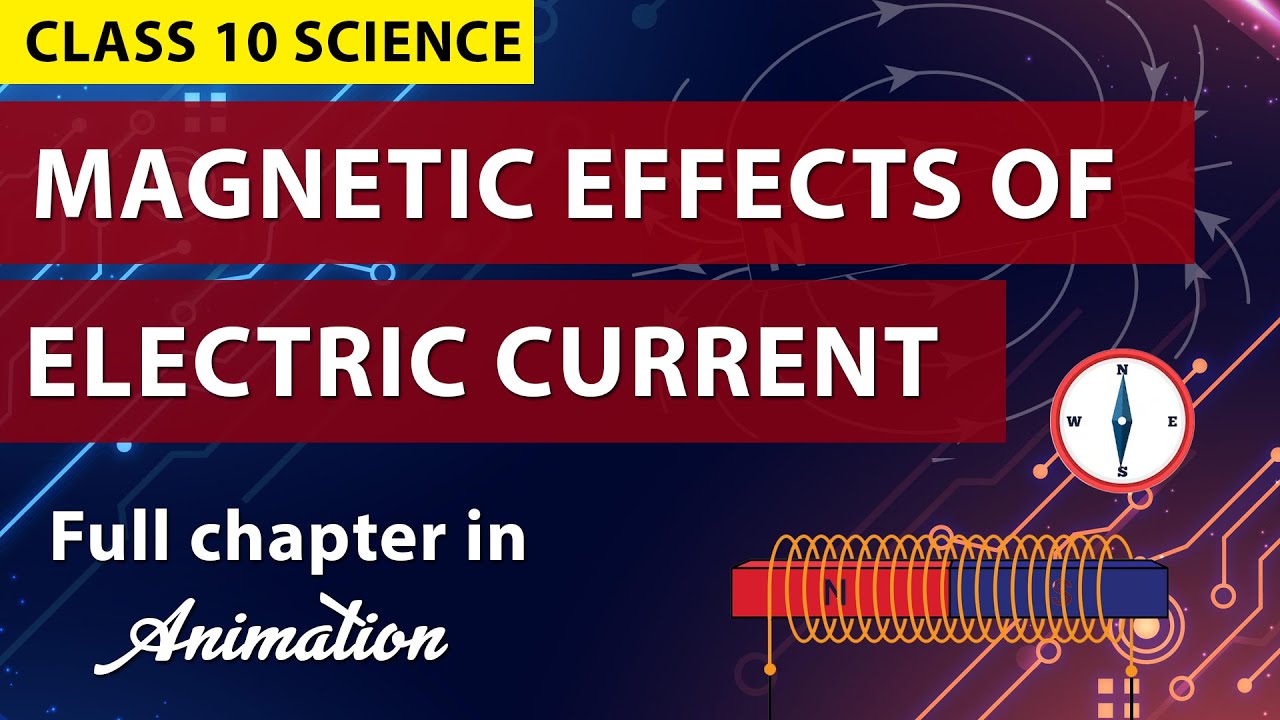GCSE Physics - Electromagnetism #78
Summary
TLDRIn this video, the principles of electromagnetism are explored, demonstrating how electric currents generate magnetic fields. Viewers learn about the right-hand rule to determine magnetic field direction, the formation of coils and solenoids, and the creation of electromagnets that can be turned on and off. The video highlights methods to increase an electromagnet's strength, such as adjusting current, coil turns, and adding an iron core. The temporary nature of electromagnets is emphasized, showcasing their practical applications in technology. This engaging explanation invites viewers to delve deeper into the fascinating interplay of electricity and magnetism.
Takeaways
- 🔌 Electric currents produce their own magnetic fields, known as electromagnetism.
- 🔄 The direction of the magnetic field around a wire is determined by the direction of the electric current flowing through it.
- 🤚 The right-hand rule helps us visualize the direction of the magnetic field: curl your fingers in the direction of the current, and your thumb points to the current's flow.
- 🔵 A flat circular coil of wire can create a stronger magnetic field by combining the fields of each side of the coil.
- 🌀 A solenoid is a long coil of wire that generates a strong and uniform magnetic field inside, resembling the field of a bar magnet outside.
- 🔋 Electromagnets only have a magnetic field when electric current is flowing; turning off the current turns off the magnetic field.
- 🔄 The magnetic field direction can be reversed by changing the direction of the electric current.
- 📈 Electromagnet strength can be increased by raising the electric current, adding more turns to the coil, shortening the coil length, or inserting an iron core.
- ⚙️ An iron core becomes magnetized when current flows through the solenoid, significantly enhancing the magnetic field.
- 🧲 The magnetic field created by an electromagnet is temporary and will vanish when the power source is disconnected.
Q & A
What is electromagnetism?
-Electromagnetism is the phenomenon where electric currents produce their own magnetic fields.
How do electric currents affect magnetic fields around a wire?
-When current flows through a wire, it creates concentric circular magnetic field lines around the wire, with the field being strongest closest to the wire.
What is the right-hand rule?
-The right-hand rule is a mnemonic for determining the direction of the magnetic field. If you curl your right hand's fingers in the direction of the current, your thumb will point in the direction of the magnetic field.
What happens when two straight wires with currents in opposite directions are placed near each other?
-The magnetic fields of the two wires will interact, causing the direction of their magnetic fields to be opposite, which can be determined using the right-hand rule.
What is a solenoid?
-A solenoid is a coil of wire with multiple turns, which produces a strong and uniform magnetic field when an electric current flows through it.
How does the magnetic field of a solenoid compare to that of a bar magnet?
-The magnetic field inside a solenoid is strong and uniform, resembling that of a bar magnet, with distinct north and south poles.
What happens to an electromagnet when the current is turned off?
-When the current is turned off, the magnetic field of the electromagnet disappears.
How can the strength of an electromagnet be increased?
-The strength of an electromagnet can be increased by: 1) increasing the current, 2) increasing the number of turns in the coil, 3) decreasing the length of the coil, and 4) adding an iron core.
What role does the iron core play in an electromagnet?
-An iron core enhances the magnetic field strength of the electromagnet because iron becomes an induced magnet when the solenoid is energized, but it loses its magnetism when the current is turned off.
Why is it important that electromagnets can be turned on and off?
-This ability to turn electromagnets on and off is crucial for their applications in various technologies, allowing for controlled magnetic fields in devices like electric motors and switches.
Outlines

Dieser Bereich ist nur für Premium-Benutzer verfügbar. Bitte führen Sie ein Upgrade durch, um auf diesen Abschnitt zuzugreifen.
Upgrade durchführenMindmap

Dieser Bereich ist nur für Premium-Benutzer verfügbar. Bitte führen Sie ein Upgrade durch, um auf diesen Abschnitt zuzugreifen.
Upgrade durchführenKeywords

Dieser Bereich ist nur für Premium-Benutzer verfügbar. Bitte führen Sie ein Upgrade durch, um auf diesen Abschnitt zuzugreifen.
Upgrade durchführenHighlights

Dieser Bereich ist nur für Premium-Benutzer verfügbar. Bitte führen Sie ein Upgrade durch, um auf diesen Abschnitt zuzugreifen.
Upgrade durchführenTranscripts

Dieser Bereich ist nur für Premium-Benutzer verfügbar. Bitte führen Sie ein Upgrade durch, um auf diesen Abschnitt zuzugreifen.
Upgrade durchführenWeitere ähnliche Videos ansehen

El Campo Electromagnético, cómo surgen las fuerzas Eléctricas y Magnéticas

Magnetic effect of electric current in one shot (Animation) | CLASS 10 CBSE boards | NCERT Science

MEDAN MAGNET DISEBABKAN ARUS LISTRIK

💯 Outline how electricity and magnetism are related | Motors and Generators

¿Qué es el electromagnetismo? | 101 Videos

FISIKA Kelas 12 - Induksi Elektromagnetik: Fluks Magnetik dan GGL Induksi | GIA Academy
5.0 / 5 (0 votes)
